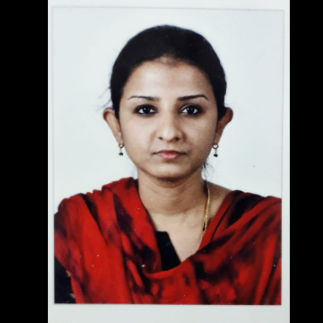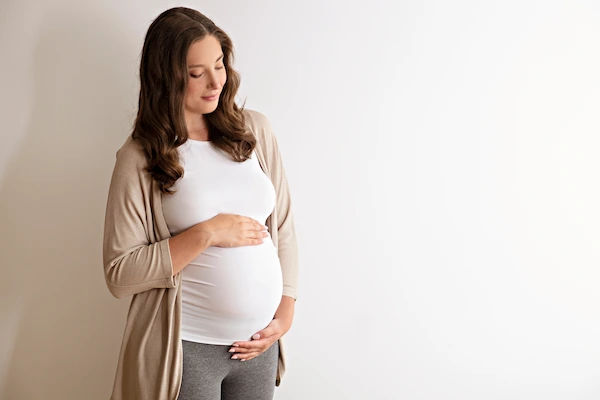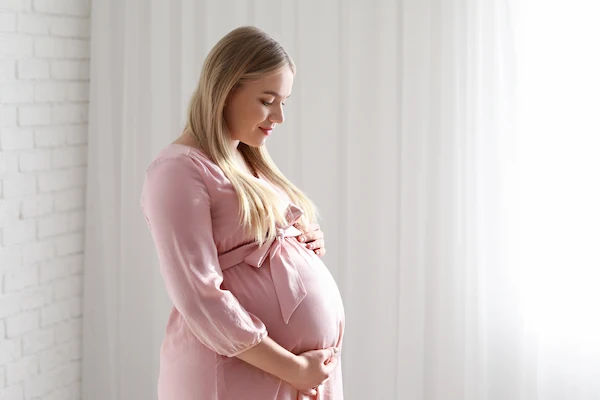Guide to Foetal Development Week By Week
Follow your baby's amazing journey with our week-by-week guide to fetal development. Learn about key milestones, physical changes, and what to expect during each stage of pregnancy.


Introduction
Pregnancy is an incredible journey of transformation, not just for you, but for the new life growing within. From a microscopic cluster of cells to a fully formed baby, the process of foetal development is nothing short of a miracle. Understanding this week-by-week progression can be a source of wonder, reassurance, and empowerment. This comprehensive guide will walk you through each stage of your baby's growth, explaining the key milestones, changes in your body, and what to expect along the way. Whether you're a first-time parent eagerly tracking every change or simply curious about the science of life, this article will serve as your roadmap through the three trimesters of pregnancy, detailing the remarkable foetal development that happens each week.
The First Trimester: Weeks 1-13
The first trimester is a period of rapid and critical development, where the foundation for all your baby's organs and systems is laid down.
Weeks 1-4: Conception and Implantation
Interestingly, pregnancy is calculated from the first day of your last menstrual period (LMP), about two weeks before you actually conceive. Around week 2, ovulation occurs. If sperm fertilizes the egg, it forms a zygote, which begins rapidly dividing as it travels down the fallopian tube. By week 4, this ball of cells, now called a blastocyst, implants itself into the lining of your uterus. The placenta, your baby's life-support system, also begins to form. This is when you might miss your period and early pregnancy tests can show a positive result. Some women experience implantation bleeding—light spotting—around this time.
Weeks 5-8: The Embryonic Period
This is arguably the most crucial period of foetal development. The embryo now forms three layers that will become all its organs and tissues.
Ectoderm: Will form the brain, spinal cord, nerves, and skin.
Mesoderm: Will form the heart, bones, muscles, and kidneys.
Endoderm: Will form the lungs, liver, and digestive system.
By week 5, the baby's tiny heart begins to beat and pump blood, often visible on an early ultrasound. Arm and leg buds appear by week 6. By the end of week 8, all essential external and internal structures have begun to form. The embryo is now about the size of a raspberry, but the head is disproportionately large. After week 8, the baby is officially called a foetus.
Weeks 9-13: Looking More Like a Baby
The foetus now looks unmistakably human. The tail has disappeared, and the fingers and toes have fully separated. The eyelids have formed but are fused shut. The kidneys start producing urine, and the genitals begin to develop externally (though it's usually too early to determine sex on an ultrasound). By the end of the first trimester, your baby can make fist-closing movements, though you won't feel them yet. The risk of miscarriage drops significantly after this point, which comes as a relief to many expectant parents.
Consult Top Specialists for Personalised Tips
The Second Trimester: Weeks 14-27
Often called the "honeymoon period" of pregnancy, the second trimester is when many early symptoms ease, and you start to show and feel your baby move.
Weeks 14-17: Rapid Growth and Movement
Your baby is now growing at an astonishing rate. Lanugo, a fine, soft hair, covers the body to help protect the skin. The skeleton is changing from soft cartilage to bone. The most exciting milestone for many mothers is quickening—the first fluttering sensations of your baby moving, which often feels like gas bubbles or a light tapping. This typically happens between weeks 16 and 22 for first-time moms.
Weeks 18-22: The Anomaly Scan
Around week 20, you'll likely have a detailed ultrasound scan, often called the anomaly scan. This checks your baby's physical development from head to toe, including the brain, heart, spine, and limbs. If you wish to find out, the sonographer can often determine the baby's sex at this scan. Your baby can now hear sounds, including your heartbeat and your voice. They are also covered in a white, waxy substance called vernix caseosa, which protects their skin from the amniotic fluid.
Weeks 23-27: Viability and Brain Development
This period marks a major milestone: the age of viability. While a baby born at 23 weeks would require extensive medical intervention, its chance of survival outside the womb begins to increase with each passing day. The brain is developing rapidly, and the lungs are developing branches and cells that produce surfactant, a substance that will help them inflate after birth. Your baby has regular sleep and wake cycles and may even suck its thumb.
The Third Trimester: Weeks 28-40
The final stretch! This trimester is all about growth, weight gain, and preparing for life outside the womb.
Weeks 28-32: Gaining Weight and Position
Your baby is putting on fat, which will help regulate its body temperature after birth. The lanugo starts to disappear. The brain can now control primitive breathing and body temperature. You'll feel more pronounced movements, including kicks, rolls, and hiccups. Babies often settle into a head-down position in preparation for birth, though some may wait until later. If you have any concerns about your baby's position or movements, consulting a doctor online with Apollo24|7 can provide immediate peace of mind.
Weeks 33-36: Final Lung Development
The lungs are nearly fully mature. The bones are fully developed but still soft to allow for the journey through the birth canal. The baby is now gaining about half a pound a week! Most of the vernix and lanugo are gone. By the end of week 36, your baby is considered "early term" and would likely thrive if born now.
Weeks 37-40: Full Term and Ready for Birth
At 37 weeks, your baby is officially full term. The brain and lungs are fully mature and ready for life outside the womb. The baby will continue to gain weight. Movements may feel different—more rolls and stretches than kicks—as space becomes tighter. In the final days, the baby may "drop" lower into your pelvis (engagement). You'll be on the lookout for signs of labour, such as your water breaking or regular, increasingly intense contractions.
Conclusion: The Journey to Meeting Your Baby
The journey of foetal development is a meticulously orchestrated process, a true marvel of nature. Tracking your baby's progress week by week can deepen your connection to your pregnancy and help you understand the incredible changes happening within your body. From that first positive test to the final countdown to labour, each stage brings new milestones and wonders. Remember, every pregnancy is unique. While this guide provides a general overview, your personal experience may vary. The most important thing is to maintain regular prenatal care, listen to your body, and seek professional advice for any concerns. If you have questions about your symptoms or your baby's growth, don't hesitate to consult a doctor online with Apollo24|7 for expert guidance. Soon, this amazing journey will culminate in the greatest reward: holding your healthy baby in your arms.
Consult Top Obstetrics and Gynaecology Surgeon
Consult Top Specialists for Personalised Tips

Dr. Surpreet Kaur Sandhu
Obstetrician and Gynaecologist
20 Years • MBBS MS (OBS Gyn). Fellowship in Minimally Invasive Gynecology Surgery & Fellowship in Advanced Infertility Training (FOGSI)
Delhi
Apollo Hospitals Indraprastha, Delhi
(200+ Patients)

Dr. Himleena Gautam
Obstetrician and Gynaecologist
11 Years • MBBS,MS,DNB,FAMS
Guwahati
Apollo Hospitals G S Road, Guwahati
(25+ Patients)

Dr. Antharvedi Santhi
Obstetrician and Gynaecologist
15 Years • MBBS Ms(obstetrics and gynaecology)
Hyderguda
Apollo Hospitals Hyderguda, Hyderguda

Dr. Swati Shah
Surgical Oncologist
15 Years • DNB Surgical Oncology, certified Robotic Cancer Surgeon
Ahmedabad
Apollo Hospitals Gandhinagar, Ahmedabad
(25+ Patients)

Dr Farhana J
Obstetrician and Gynaecologist
8 Years • MBBS,DGO,DNB(OG)
Tiruchirappalli
Apollo Speciality Hospitals Old Palpannai, Tiruchirappalli
Consult Top Obstetrics and Gynaecology Surgeon

Dr. Surpreet Kaur Sandhu
Obstetrician and Gynaecologist
20 Years • MBBS MS (OBS Gyn). Fellowship in Minimally Invasive Gynecology Surgery & Fellowship in Advanced Infertility Training (FOGSI)
Delhi
Apollo Hospitals Indraprastha, Delhi
(200+ Patients)

Dr. Himleena Gautam
Obstetrician and Gynaecologist
11 Years • MBBS,MS,DNB,FAMS
Guwahati
Apollo Hospitals G S Road, Guwahati
(25+ Patients)

Dr. Antharvedi Santhi
Obstetrician and Gynaecologist
15 Years • MBBS Ms(obstetrics and gynaecology)
Hyderguda
Apollo Hospitals Hyderguda, Hyderguda

Dr. Swati Shah
Surgical Oncologist
15 Years • DNB Surgical Oncology, certified Robotic Cancer Surgeon
Ahmedabad
Apollo Hospitals Gandhinagar, Ahmedabad
(25+ Patients)

Dr Farhana J
Obstetrician and Gynaecologist
8 Years • MBBS,DGO,DNB(OG)
Tiruchirappalli
Apollo Speciality Hospitals Old Palpannai, Tiruchirappalli
More articles from pregnancy
Frequently Asked Questions
When does the embryonic heart start beating?
The baby's heart begins to form just 3 weeks after conception and starts beating around week 5 of pregnancy, though it may be detected on a transvaginal ultrasound a week or two later.
What is the difference between an embryo and a foetus?
The term 'embryo' is used from implantation until the 8th week of pregnancy, covering the period when all major organs begin to form. After the 8th week, the developing baby is called a 'foetus,' a stage focused on growth and refinement.
When can you typically determine the baby's sex?
The genitals begin to differentiate around week 7, but it's usually not visible on an ultrasound until the anatomy scan between weeks 18 and 22 of pregnancy.
Is it normal to not feel the baby move at 20 weeks?
Yes, especially for first-time mothers. The first sensations of movement (quickening) can be subtle and are often felt between 18 and 22 weeks. If you are concerned about a lack of movement after 24 weeks, you should contact your healthcare provider.
What are the key milestones in foetal brain development?
The neural tube, which becomes the brain and spinal cord, forms in the first month. Rapid brain development, including the formation of grooves and indentations, happens in the second trimester. The third trimester is dedicated to massive growth and complex brain wiring, a process that continues after birth.




